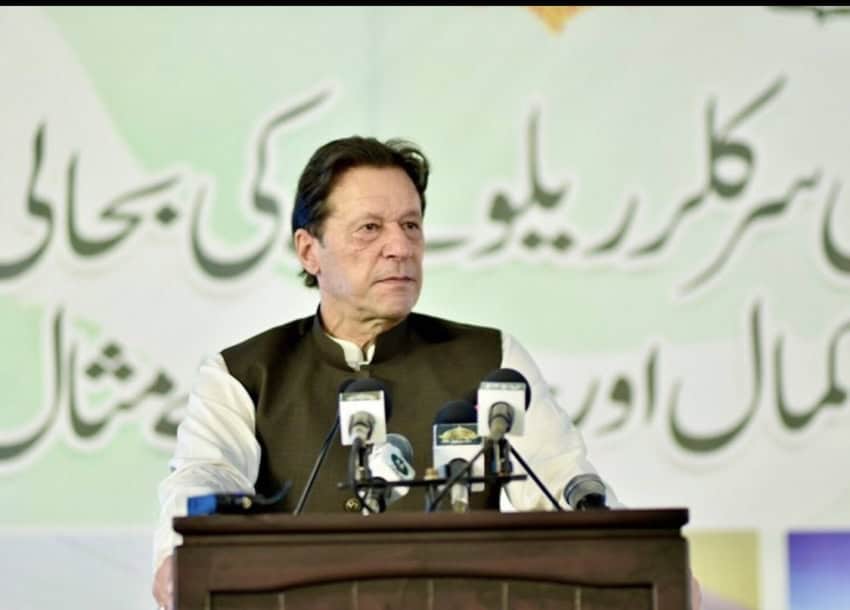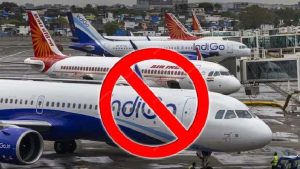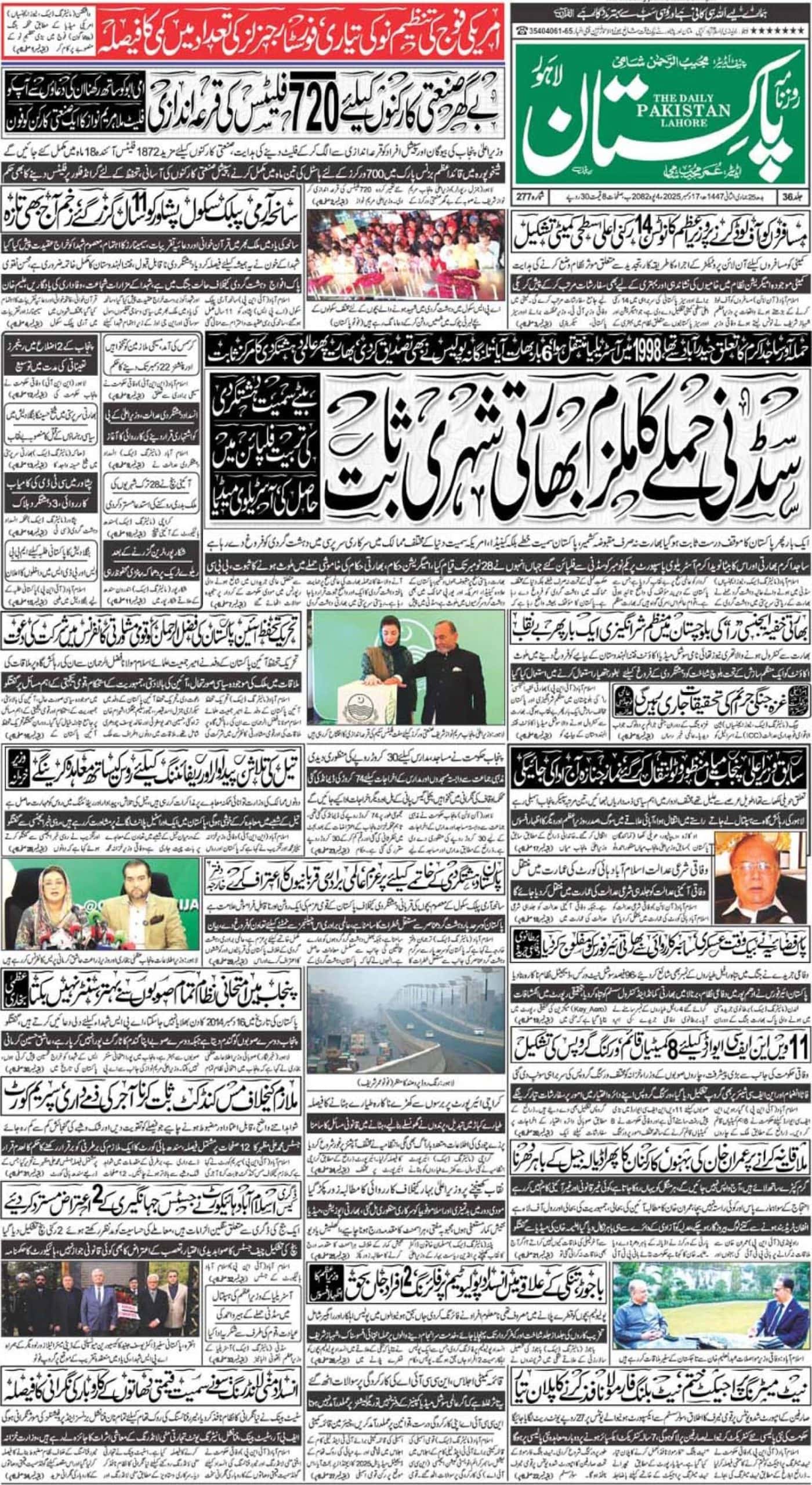ISLAMABAD – Prime Minister Imran Khan has lashed out at the Afghan and Western governments for scapegoating Pakistan for the outcome of the war in Afghanistan.
The premier in an opinion piece for The Washington Post wrote: “Watching the recent Congressional hearings on Afghanistan, I was surprised to see that no mention was made of Pakistan’s sacrifices as a U.S. ally in the war on terror for more than two decades. Instead, we were blamed for America’s loss”.
“Let me put it plainly. Since 2001, I have repeatedly warned that the Afghan war was unwinnable. Given their history, Afghans would never accept a protracted foreign military presence, and no outsider, including Pakistan, could change this reality,” he said.
Hitting out at the previous governments in Pakistan, he said that “successive Pakistani governments after 9/11 sought to please the United States instead of pointing out the error of a military-dominated approach”.
Desperate for global relevance and domestic legitimacy, Pakistan’s military dictator Pervez Musharraf agreed to every American demand for military support after 9/11. This cost Pakistan, and the United States, dearly, he added.
He highlighted that the US had been supporting the Afghan Taliban in 1980s. “Back then, these Afghans were hailed as freedom fighters performing a sacred duty. President Ronald Reagan even entertained the mujahideen at the White House,” he said.
“Once the Soviets were defeated, the United States abandoned Afghanistan and sanctioned my country, leaving behind over 4 million Afghan refugees in Pakistan and a bloody civil war in Afghanistan. From this security vacuum emerged the Taliban, many born and educated in Afghan refugee camps in Pakistan,” the premier wrote.
“Fast forward to 9/11, when the United States needed us again — but this time against the very actors we had jointly supported to fight foreign occupation,” said PM Imran Khan.
He said that Musharraf offered Washington logistics and air bases, allowed a CIA footprint in Pakistan and even turned a blind eye to American drones bombing Pakistanis on our soil.
He lamented how Pakistan Army troops had been sent into the semiautonomous tribal areas on the Pakistan-Afghanistan border, “which had earlier been used as the staging ground for the anti-Soviet jihad. The fiercely independent Pashtun tribes in these areas had deep ethnic ties with the Taliban,” he wrote.
The prime minister highlighted how 16,000 terrorist attacks were conducted against Pakistan by over 50 militant groups, who saw the US and Pakistan as collaborators, during the period of 2005 to 2016.
“We suffered more than 80,000 casualties and lost over $150 billion in the economy. The conflict drove 3.5 million of our citizens from their homes. The militants escaping from Pakistani counterterrorism efforts entered Afghanistan and were then supported and financed by Indian and Afghan intelligence agencies, launching even more attacks against us,” he said.
The premier criticised former president Asif Ali Zardari, referring to him as “undoubtedly the most corrupt man to have led my country”, accusing him of not worrying about the collateral damage due to US drone strikes. He said former prime minister Nawaz Sharif was no different from Zardari.
He then talked about why the situation in Afghanistan turned messy, despite it improving in Pakistan after the army’s onslaught against militants in 2016.
“In Afghanistan, the lack of legitimacy for an outsider’s protracted war was compounded by a corrupt and inept Afghan government, seen as a puppet regime without credibility, especially by rural Afghans,” he wrote.
“Tragically, instead of facing this reality, the Afghan and Western governments created a convenient scapegoat by blaming Pakistan, wrongly accusing us of providing safe havens to the Taliban and allowing its free movement across our border. If it had been so, would the United States not have used some of the 450-plus drone strikes to target these supposed sanctuaries?”
PM Khan explained about steps taken by Pakistan to satisfy Kabul, adding that Islamabad offered Kabul a various measures for securing the border but each idea was rejected.
“Instead, the Afghan government intensified the ‘blame Pakistan’ narrative, aided by Indian-run fake news networks operating hundreds of propaganda outlets in multiple countries,” he said.
He said that negotiations between Taliban and Afghan government should have been started much earlier in order to avoid the embarrassing collapse of the Afghan army and Ashraf Ghani-led government.
“Surely Pakistan is not to blame for the fact that 300,000-plus well-trained and well-equipped Afghan security forces saw no reason to fight the lightly armed Taliban. The underlying problem was an Afghan government structure lacking legitimacy in the eyes of the average Afghan,” he added.
He said the “right thing” right now for the world to do would be to engage with the new Afghanistan government, adding that if assured of constant humanitarian aid, the Taliban will have greater incentive to honour the global community’s demands.
“Providing such incentives will also give the outside world additional leverage to continue persuading the Taliban to honor its commitments,” he wrote.
“If we do this right, we could achieve what the Doha peace process aimed at all along: an Afghanistan that is no longer a threat to the world, where Afghans can finally dream of peace after four decades of conflict. The alternative — abandoning Afghanistan — has been tried before,” warned the Pakistan’s prime minister.
As in the 1990s, it will inevitably lead to a meltdown. Chaos, mass migration and a revived threat of international terror will be natural corollaries. Avoiding this must surely be our global imperative.”













